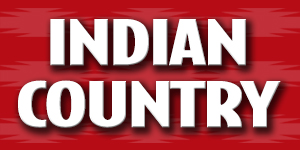Wyoming Circuit Court rules on Herrera unoccupied lands case
By YVETTE TUELL
Office of Public Affairs
FORT HALL – On June 11, the Wyoming Circuit Court ruled the entire Big Horn National Forest is occupied and the Crow Tribe off-reservation treaty right to hunt in Wyoming is subject to Wyoming regulation.
Shoshone-Bannock Tribes attorney Bill Bacon has been closely following the case because of the potential implication to Shoshone-Bannock tribal members.
Bacon has been working with Kyle Gray, Clayvin Herrera’s attorney, on appealing the Wyoming circuit court ruling. At this time, Gray has not indicated whether she will appeal the recent Wyoming court ruling. If that ruling is appealed to the Wyoming district court, there is a chance that court could affirm the circuit court decision and the case could be back before the U.S. Supreme Court on those two issues. If that happens Bacon is prepared to file another amicus brief in the U.S. Supreme Court on behalf of the Shoshone-Bannock Tribes.
On May 20, 2019, the U.S. Supreme Court in Herrera v. Wyoming reversed the 1896 case of Ward v. Racehorse that held the Fort Bridger off reservation treaty right was extinguished upon Wyoming’s statehood. Although the Herrera case involved the Crow treaty, the two treaties have identical off reservation language. The Great Peace Commission negotiated both treaties in the summer of 1868. Bacon, attorney for the Shoshone-Bannock Tribes, successfully filed an amicus brief on behalf of the Tribes in the Supreme Court case. The Supreme Court also remanded back to the Wyoming state courts for findings on two issues. The first was whether where Herrera harvested his elk was “occupied” according to the treaty language. The second was whether the Crow Tribe’s off reservation treaty right is subject to state regulation under the doctrine of conservation necessity.
On June 11, the Wyoming circuit court held the entire Big Horn National Forest is occupied for purposes of the Crow off reservation treaty, and the Crow tribe off reservation treaty right is subject to state regulation. In other words, the Crow tribe must comply with state hunting laws when hunting off the reservation and they cannot hunt on National Forest land. Herrera has 30 days to appeal the Wyoming circuit court ruling.
The reason the Herrera case is important to the Shoshone-Bannock Tribes is the two treaties’ off reservation right language is identical. Although the Herrera case is limited to the Crow hunting, fishing and gathering in Wyoming, because the U.S. Supreme Court is the supreme law of the land, Idaho could assert any adverse Supreme Court ruling in Herrera is applicable to the Shoshone-Bannock Tribes’ off reservation treaty language in Idaho.





